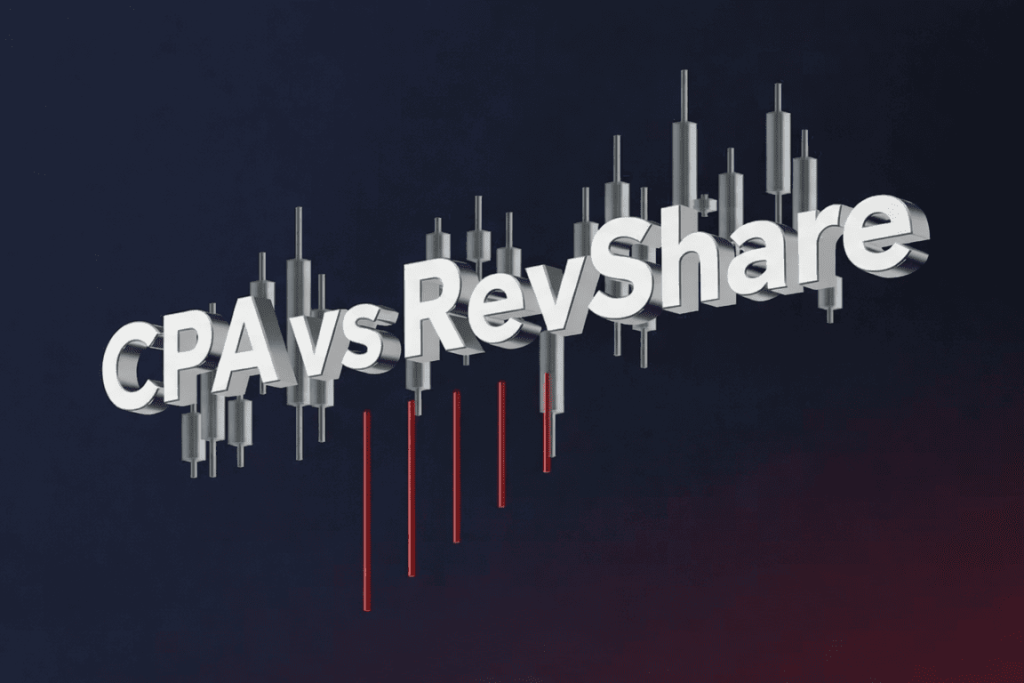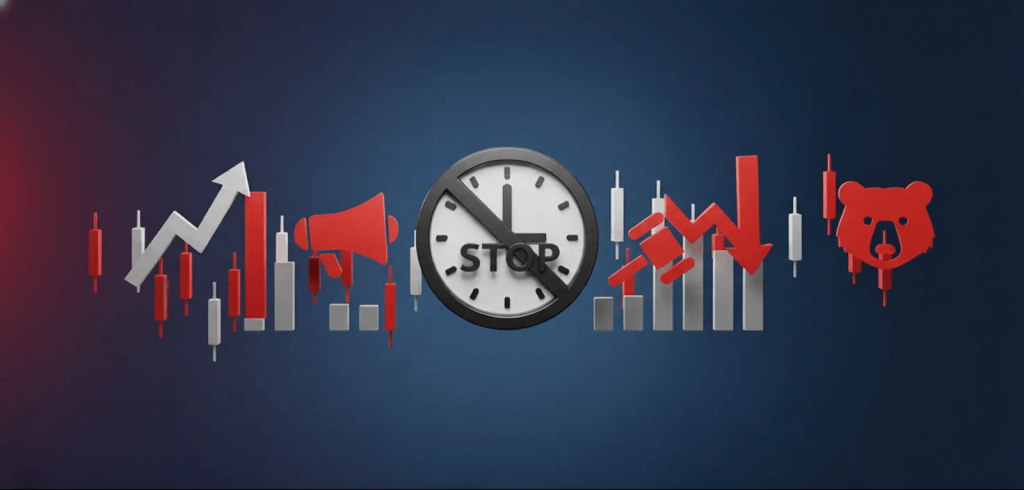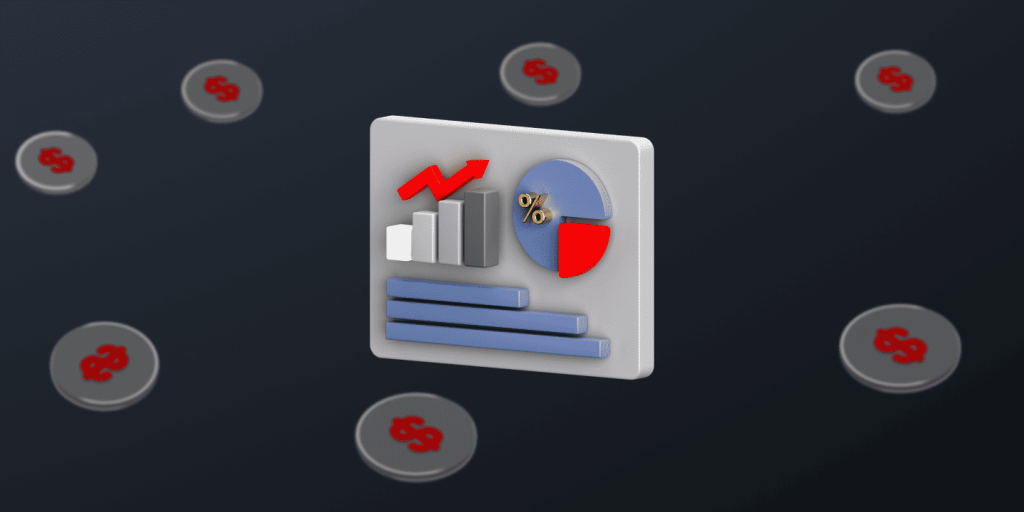
Что такое OTC? Плюсы и минусы внебиржевых торговых инструментов
В статье
Подавляющее большинство активов торгуется через централизованные платформы, такие как NYSE или NASDAQ, где определённые правила и требования обязательны для всех сторон. Однако существует и обратная сторона финансового мира — внебиржевые сделки, которые заключаются напрямую между покупателями и продавцами, без участия третьих лиц.
Что такое внебиржевая торговля?
Внебиржевая торговля (OTC) — это процесс покупки и продажи различных финансовых инструментов вне официальных биржевых площадок. Две стороны взаимодействуют друг с другом напрямую, без участия посредников.
Внебиржевой рынок не имеет физического местоположения — все транзакции совершаются через сеть дилеров. Такая система открывает доступ к гораздо более широкому спектру финансовых инструментов.
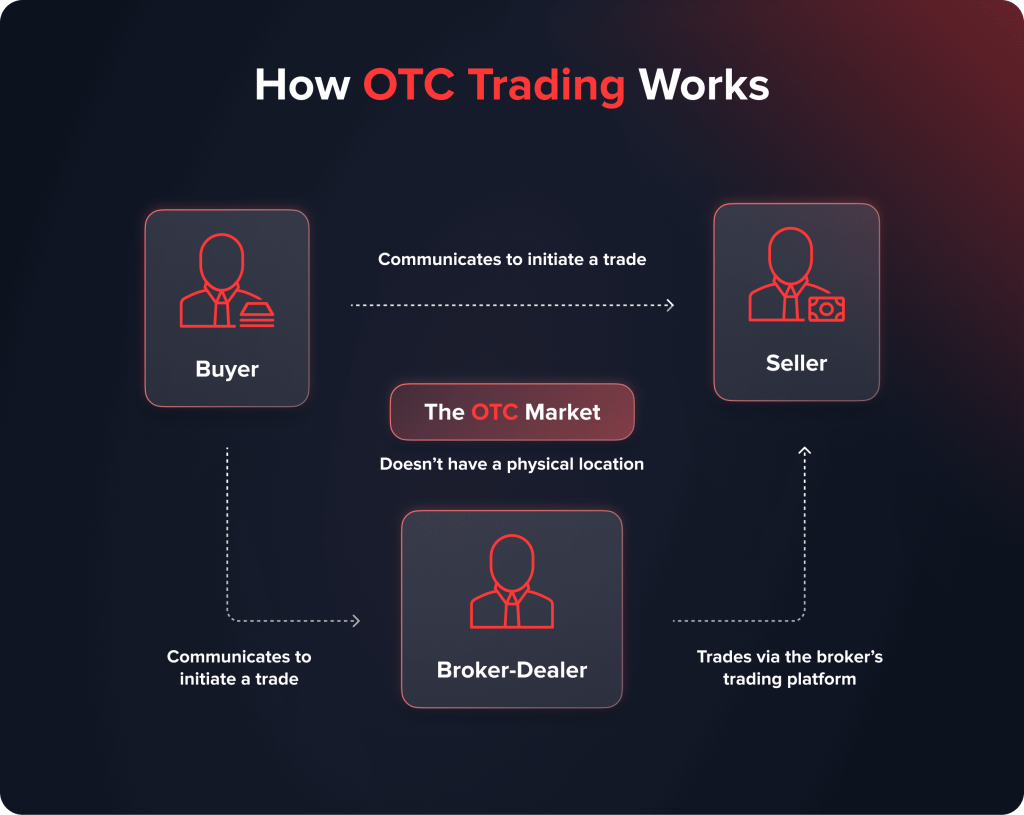
Ключевые различия между внебиржевой и биржевой торговлей
- Аспекты регулирования. Все сделки, совершаемые на централизованной бирже, строго регулируются финансовыми органами. Внебиржевой рынок контролируется в меньшей степени.
- Централизация. Что касается биржевой торговли, то все сделки регистрируются и стандартизированы. Что касается внебиржевых сделок, то покупатели и продавцы обсуждают индивидуальные условия.
- Риски. Валютные операции минимизируют риски дефолта за счет клиринговых палат, а внебиржевые инструменты не сопровождаются такими гарантиями.
Внебиржевые инструменты включают акции, деривативы, валюту, коммерческие облигации, криптовалюты и другие активы. Каковы особенности внебиржевого рынка с точки зрения каждой категории?
Внебиржевые акции
Проще говоря, категория внебиржевых акций (OTC) включает в себя все акции, не котирующиеся на основных биржах. Инвесторы интересуются такими инструментами по нескольким причинам. Во-первых, многие перспективные стартапы не выходят на биржи из-за высоких издержек и сложности, поэтому инвесторы наполняют свои портфели акциями с исключительно высоким потенциалом роста. С другой стороны, возникают и дополнительные риски. Например, внебиржевые акции, как правило, характеризуются существенной волатильностью и имеют иные требования к раскрытию информации.
При поиске внебиржевых акций следующие рынки входят в число наиболее рейтинговых:
- OTCQX. Этот рынок характеризуется строгими требованиями к финансовой отчетности. Он приветствует компании, ориентированные на инвесторов, и имеет строгий набор стандартов листинга.
- ОТКБ. На рынке также действуют строгие требования (но менее строгие по сравнению с OTCQB) к листингу, чтобы гарантировать инвесторам, что все листингуемые компании соответствуют требованиям прозрачности и стандартам отчетности.
- Розовый Открытый Рынок. Требования не столь строгие, что открывает доступ к многочисленным небольшим спекулятивным компаниям.
Внебиржевые деривативы
Рынок внебиржевых деривативов включает финансовые контракты с базовыми активами. В качестве базового актива могут выступать товары, валюты и т.д. Эти контракты представлены в форме фьючерсов, опционов, свопов. Внебиржевые деривативы не имеют фиксированных правил и условий – стороны согласовывают правила и требования самостоятельно, без посредников. Гибкость считается главным преимуществом внебиржевых деривативов, однако при этом возникают кредитные риски – для таких инструментов не предусмотрен дополнительный уровень защиты.
Рынок внебиржевых производных инструментов стабильно растет — аналитики прогнозируют, что к 2032 году объем этого сектора достигнет 25,8 млрд долларов, а среднегодовой темп роста составит 3,14%.
внебиржевой Форекс
Безрецептурные Торговля на Форекс Это означает, что все сделки заключаются между форекс-брокерами и сетью банков. Биржи не участвуют в подобных торговых механизмах. Брокерские компании выполняют роль посредников, эмитентов и кастодианов CFD. Внебиржевой рынок Форекс работает круглосуточно. Кроме того, на рынке могут торговаться экзотические валюты, недоступные на традиционных биржах.
Внебиржевые криптовалюты
Криптовалюты, торгуемые вне биржи, не попадают на торговые площадки. Две стороны встречаются через внебиржевые торги и договариваются о ценах и объёмах. Таким образом, цифровые активы покупаются и продаются напрямую, без посредников. Обе стороны получают лучшие условия и полную анонимность.
Что касается других активов, то облигации, коммерческие бумаги и другие инструменты также могут торговаться на внебиржевом рынке. Правила и требования те же: обе стороны покупают/продают активы без взаимодействия с посредниками.
Таким образом, внебиржевые инструменты весьма разнообразны. Каковы основные преимущества и недостатки таких сделок?
Ключевые преимущества внебиржевых рынков
- Гибкость. Взаимодействие между покупателями и продавцами позволяет обсуждать цены, объёмы и условия. Такая модель помогает сторонам найти компромисс, устраивающий обе стороны.
- Разнообразие инструментов. Внебиржевой рынок открывает доступ к тысячам разнообразных активов, включая экзотические. Многие компании недостаточно велики, чтобы предлагать свои акции на традиционных биржах, поэтому внебиржевая модель оказывается лучшим решением для поиска инвесторов. Инвесторы же находят множество перспективных активов по привлекательным ценам.
- Анонимность. В большинстве случаев внебиржевые сделки анонимны — стороны обсуждают все условия самостоятельно.
- Снижение торговых издержек. Трейдеры и инвесторы не платят огромные биржевые сборы и комиссии, поскольку на процесс не влияют третьи лица.
- Никаких временных ограничений. Внебиржевые рынки доступны круглосуточно семь дней в неделю и не зависят от рабочих дней и часов биржи.
Главные недостатки внебиржевых рынков
- Риски контрагента. В биржевой торговле клиринговые палаты гарантируют выполнение условий сделки обеими сторонами. Что касается внебиржевых инструментов, одна из сторон может не выполнить свою часть сделки.
- Низкий ликвидность Многие инструменты, торгуемые на внебиржевых рынках, обладают низкой ликвидностью, что означает, что у инвестора не будет возможности быстро продать такие активы по справедливой цене.
- Риски манипуляций. Если говорить об активах, которые не торгуются на традиционных биржах, то возникают высокие риски манипуляций.
You may also like

Как выйти на внебиржевой рынок: полезные советы и рекомендации
Инвесторы и трейдеры не могут получить прямой доступ к внебиржевым инструментам. Им необходимо сотрудничать с поставщиком внебиржевых торговых услуг. Вот несколько ключевых критериев, по которым можно определить надёжного поставщика:
- Регулирование и лицензирование. Ведущие поставщики услуг имеют лицензии от надежных финансовых регуляторов.
- Высокие цены. Просмотрите отзывы, чтобы понять, какие компании рекомендует сообщество.
- Торговые условия и комиссии. Работайте с поставщиками, которые предлагают лучшие торговые условия и низкие комиссии.
- Широкий спектр финансовых инструментов. Чем больше активов доступно через внебиржевую модель, тем лучше.
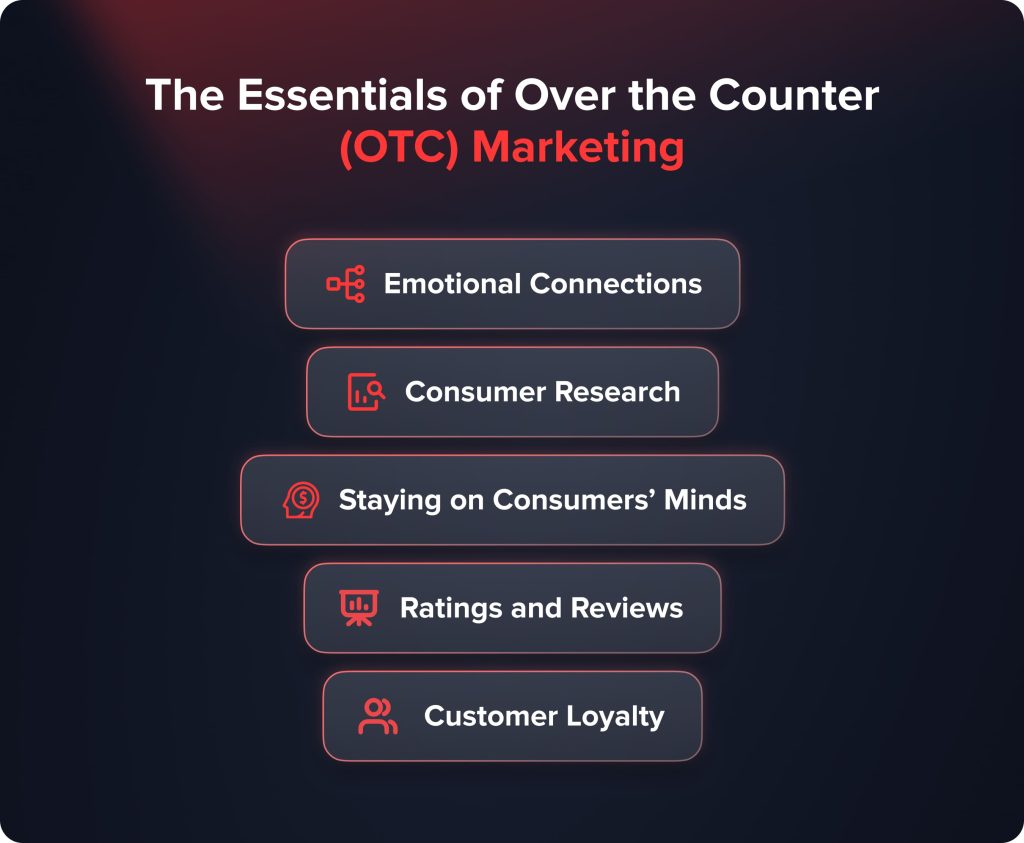
В большинстве случаев в каждой категории есть несколько топовых игроков: высокорейтинговые внебиржевые форекс-брокеры, высококлассные внебиржевые криптобиржи, ведущие в отрасли платформы для внебиржевых деривативов и т. д. Никогда не доверяйте начинающим посредникам, у которых нет отзывов.
Каковы примеры внебиржевых сделок?
Давайте подробнее рассмотрим процесс внебиржевой торговли с точки зрения компании, которая хочет инвестировать в экзотические перспективные акции.
- Например, компания AI Technologies — перспективный стартап, представляющий сектор искусственного интеллекта. Акции AI Technologies не котируются на традиционных биржах.
- Институциональный инвестор понимает высокий потенциал отрасли и хочет купить акции AI Technologies.
- Институциональный инвестор обращается к внебиржевым брокерам, которые открывают доступ на внебиржевой рынок ценных бумаг.
- Несколько внебиржевых брокеров предлагают акции AI Technologies и информируют институциональных инвесторов о котировках. Например, один брокер может продать 10 000 акций по цене $3,20 за акцию. Другой брокер предлагает 35 000 акций по цене $2,95 за акцию.
- Институциональный инвестор сравнивает все доступные предложения и приобретает акции у брокера, предлагающего наиболее выгодные условия.
- Сделка осуществляется напрямую между двумя сторонами. Ни факт сделки, ни цены не разглашаются.
You may also like
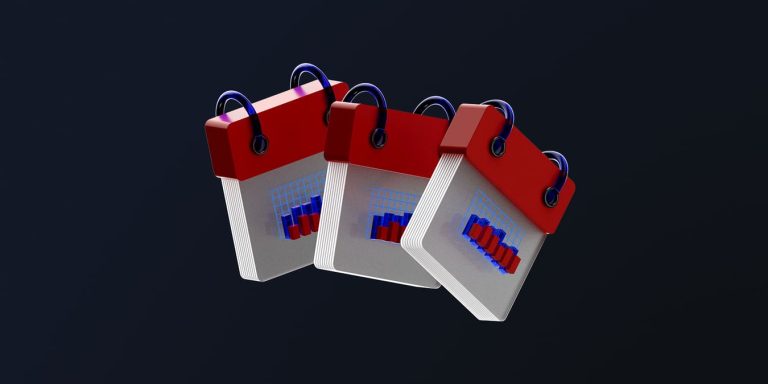
Каково будущее внебиржевых рынков?
Биржевая торговля гораздо безопаснее и исключает большинство рисков для инвесторов, поэтому именно такой вариант часто рассматривается как основа мировой финансовой системы. На самом деле, внебиржевые рынки гораздо важнее. Внебиржевые инструменты используются крупными инвесторами, институтами и фондами, что означает, что наибольшие объёмы торгов происходят вне традиционных бирж. Статистика показывает, что объёмы внебиржевых торгов продолжают стремительно расти.
В настоящее время внебиржевые инструменты и посредники подвергаются влиянию технологий и обновленных норм регулирования, адаптируясь к новым тенденциям и стандартам.
Рынок внебиржевых опционов: использовать или нет?
Внебиржевые торговые инструменты имеют как плюсы, так и минусы. Рынок — лучшее решение для крупных инвесторов, ищущих экзотические активы, не котирующиеся на традиционных площадках. Кроме того, внебиржевые сделки не раскрывают цены и условия публично. С другой стороны, такая модель сопряжена с повышенными рисками как для покупателей, так и для продавцов. С точки зрения институциональных инвесторов и других крупных игроков, внебиржевые площадки — лучшее место для заключения сделок. Для мелких розничных инвесторов традиционные биржи менее рискованны и более прозрачны.
Обновлено:
19 декабря 2024 г.

